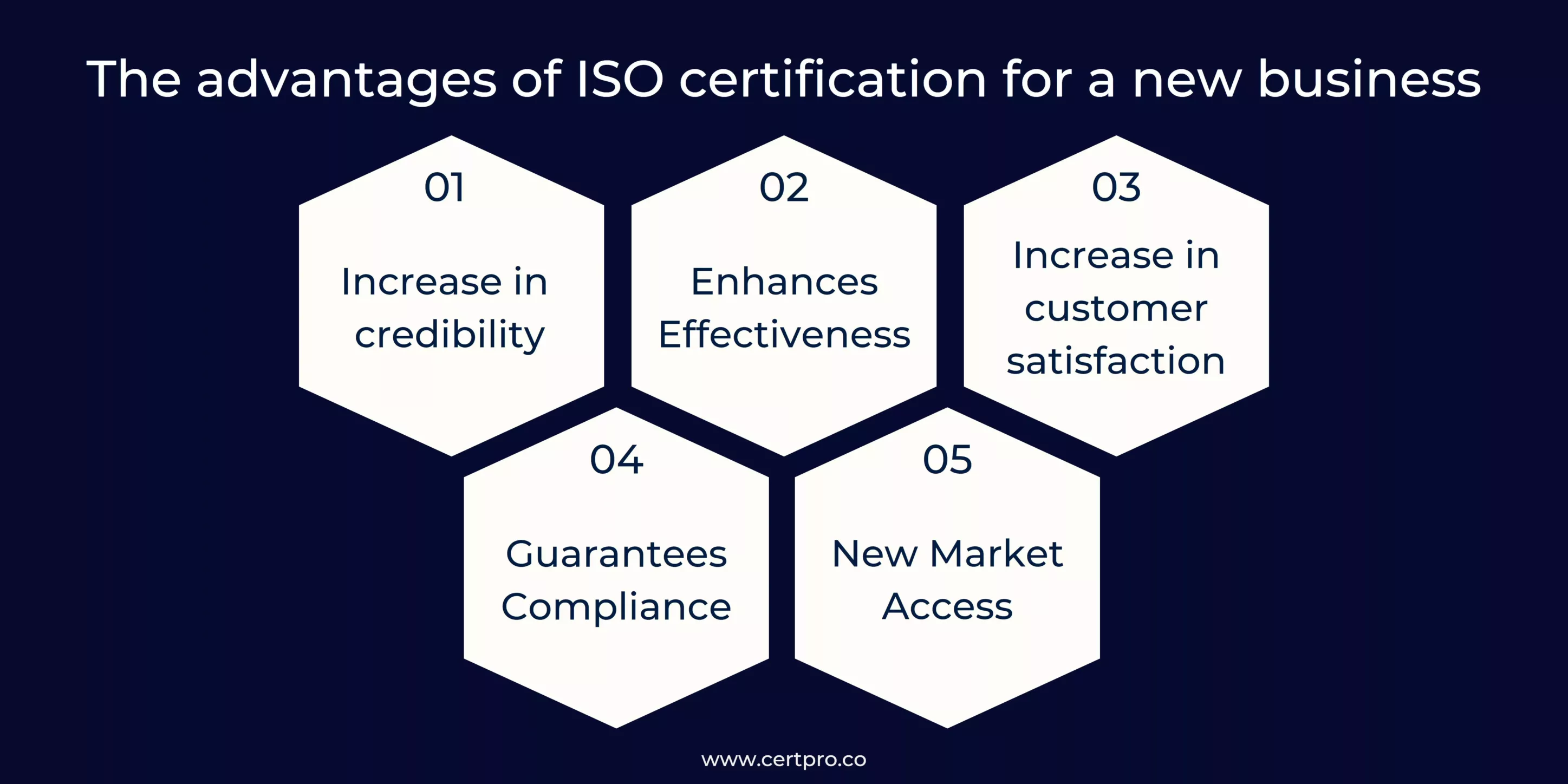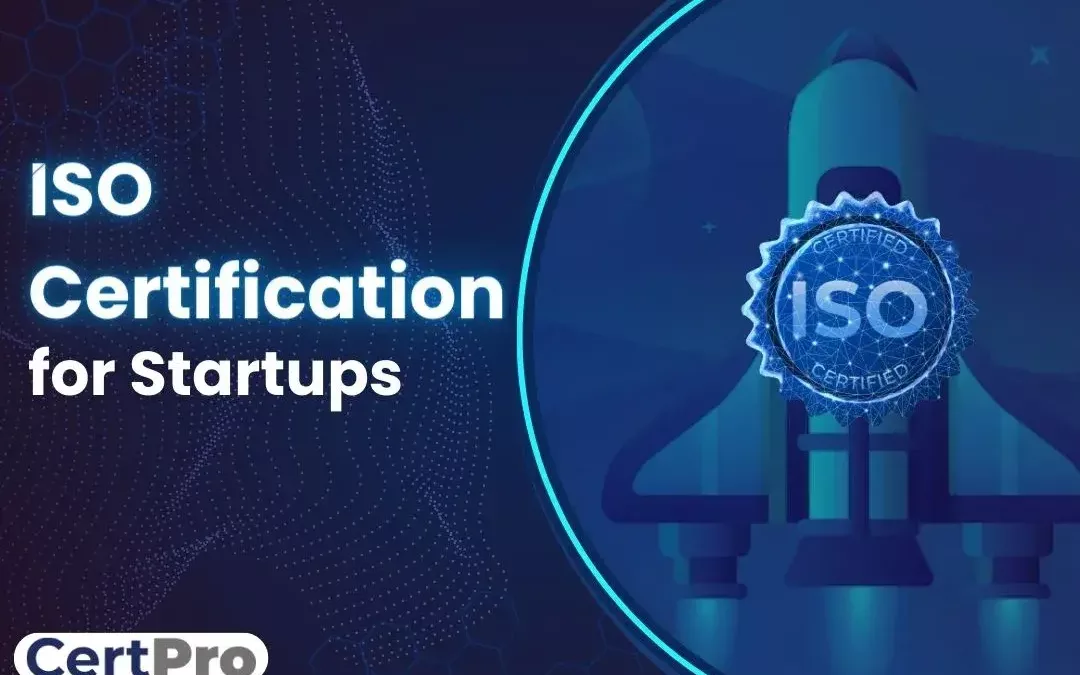Embarking on the journey of starting a new company can be an exhilarating yet challenging process. Establishing a reputation for excellence, efficiency, and compliance is one of the significant hurdles faced by fledgling businesses. In this regard, obtaining ISO Certification for Startups can provide a significant advantage.
ISO certification, a widely recognized standard, encompasses guidelines for various business processes. It serves as a confirmation that a company adheres to the highest standards of quality, effectiveness, and compliance. In this post, we will explore the benefits of ISO Certification for Startups, emphasizing its relevance and value for emerging businesses.
What is ISO certification?
The International Organization for Standardization is known by the initials ISO. It is a private, non-governmental organization that creates and disseminates worldwide standards for a range of commercial and industrial fields. In order to give recommendations for quality management, environmental management, information security, and occupational health and safety, the ISO has created a set of standards.
An organization can prove that it complies with an ISO standard by undergoing the ISO certification procedure. An accredited certification authority conducts an impartial audit as part of the certification process. The firm will be given a certificate of conformity if it complies with the standard’s criteria.
How to Become ISO Certified as a Startup
- Find the relevant standard : The identification of the relevant standard is the first stage in acquiring ISO certification. The ISO has developed a number of standards for various aspects of corporate operations, such as quality management, environmental management, information security, and occupational health and safety. Startups need to determine which ISO standard applies to their particular activities.
- Create and put into effect a management system: The next action is to create and put into place a management system that complies with the relevant ISO standard. Creating rules, procedures, and processes that address the pertinent elements of the standard may be required. The management system ought to be planned to guarantee that the business complies with the standard’s criteria and keeps enhancing its procedures.
- Carry out internal audits: To find any areas that require development or correction, startups should undertake internal audits of their management systems. Startups can use internal audits to find process gaps and confirm that they are adhering to the standards of the relevant ISO standard.
- Employ a recognized certification body: The next stage is to commission an external audit of the business’ management system by a recognized certifying authority. The certification organization will assess the company’s processes and procedures to make sure they adhere to the requirements of the relevant ISO standard. The firm will be given a certificate of conformity if it complies with the standard’s criteria.
- Continue to get better: ISO certification is a lifelong accomplishment. To stay in compliance with the standard, businesses must continually review and enhance their procedures. Startups should assess their management systems and procedures on a regular basis to find areas for enhancement and implement the required adjustments.
The advantages of ISO certification for a new business

- Increase in credibility: For a beginning business, one of the major advantages of ISO certification is that it raises its reputation. Internationally renowned and regarded, ISO certification proves that the business has adopted best practices and complies with global standards. The company’s credibility with clients, investors, and other stakeholders may improve as a result.
- Enhances Effectiveness: Startups may decrease expenses, increase productivity, and simplify their operations by putting in place an ISO-certified management system. Profitability and competitiveness may rise as a result. Startups may find areas for improvement, streamline their procedures, and boost production by adhering to the rules and best practices outlined in an ISO standard.
- Increase in customer satisfaction: Startups can benefit from ISO certification by raising the caliber of their goods and services and increasing client satisfaction. Startups may make sure that their goods or services are consistently of high quality by putting in place a quality management system that complies with an ISO standard. This helps your company with consumer loyalty and repeat business.
- Guarantees Compliance: Startups must adhere to various rules and regulations in order to receive ISO certification. By doing this, the firm may lower its risk of facing legal or financial repercussions and ensure that it is complying with all legal and regulatory requirements. Startups may gain the trust of clients and other stakeholders by proving that they adhere to an ISO standard and avoiding any legal or financial problems.
- New Market Access: Certain clients or marketplaces could demand ISO certification as a condition of doing business. Obtaining ISO certification can help startups expand their customer base and access new markets. Additionally, it may aid in creating new corporate alliances and prospects.
Obtaining ISO Certification for a Startup and its Challenges
For startups, obtaining ISO certification may be a difficult and time-consuming procedure. The following are some difficulties that startups could experience:
- Limited Resources: Startups might not have enough staff, funds, or time to set up and operate an ISO-certified management system. For startups, putting in place a management system may be a big financial commitment. To make sure they can comply with the ISO standard, they may need to carefully plan their resources.
- Intolerance of Change: It may be necessary to make considerable modifications to a startup’s processes and procedures in order to implement a management system that complies with an ISO standard. These changes can be met with criticism and opposition from the workforce.
- Lack of expertise and knowledge: It’s possible that startups lack the skills and knowledge required to develop an ISO-certified management system. To help with the system’s deployment and upkeep, they might need to recruit outside consultants or trainers.
For companies wanting to build a reputation for excellence, effectiveness, and compliance, ISO certification may be a useful asset. It might improve a startup’s reputation among stakeholders, including consumers, investors, and others. Startups can also decrease expenses, increase productivity, and simplify operations by using an ISO-certified management system. Startups should carefully examine the resources needed to build and maintain a certified management system, as acquiring ISO certification may be a difficult and time-consuming process.
In general, ISO certification can give startups a competitive edge. It may assist startups in gaining the confidence of clients and other stakeholders, opening up new markets, and promoting company expansion and success.
Get ISO certified with the help of CertPro.
For new businesses, ISO certification might be a worthwhile investment. It may provide startups with a competitive advantage, boost their reputation, and show their dedication to excellence and ongoing progress. Startups may reorganize their business processes, boost productivity, and save expenses by putting in place an ISO-certified management system.
It can be difficult and time-consuming to get ISO certification, especially for startups with limited resources and knowledge. Startups may collaborate with a reputable certification body like CertPro, which can give them the required direction and help during the certification process, to overcome these obstacles. In addition to providing a variety of certification services, such as ISO 9001, ISO 14001, ISO 45001, and ISO 27001, CertPro also works with startups to provide specialized solutions that address their particular needs and specifications.
FAQ
Can a startup company obtain an ISO 27001 certification?
If you utilize protected data in any form and intend to conduct business with any clients or partners outside the US, ISO 27001 will be one of the standards you will need to prove your compliance with. This should serve as your introduction to ISO 27001 for startups.
How can I obtain an ISO certificate for a new business?
- Make a proposal or contract
- Review of High-Quality Documents
- Create a plan of action
- Audit for first certification
- achieving ISO Certification
- Audits of surveillance
Anyone who requires ISO certification?
Seven sectors that require ISO 9001 certification
Services in Engineering, Technology, Construction, Manufacturing, Hospitality & Hotels, Communal services, Health.
What qualities do new businesses search for in an ISO certification body?
Startup businesses should search for a renowned, trustworthy firm with expertise dealing with businesses in their field when selecting an ISO certification body. They should also take into account the certification body’s cost, quality of support provided during the certification process, and accreditation status. A competent certification organization should communicate in a straightforward and open manner, offer solutions that are specifically tailored to each client’s requirements, and respond quickly to customer comments and issues.
How does ISO certification help startup companies to access new markets?
ISO certification is often a requirement for participating in government tenders and contracts, and for accessing international markets. By obtaining ISO certification, startup companies can demonstrate that they have met the quality and safety requirements of these markets, and gain a competitive edge over non-certified competitors.

About the Author
BHOOMIKA JOIS
Bhoomika Jois is a creative content writer specializing in compliance, ISO 27001, GDPR, and SOC 2. As a Social Media Marketing Specialist, she amplifies her engaging content. Bhoomika’s knack for simplifying complex topics makes compliance and cybersecurity accessible to all.
UNDERSTANDING ISO 42001: A GUIDE FOR RESPONSIBLE AI MANAGEMENT SYSTEMS
The invention of artificial intelligence (AI) has changed the operational processes of many industries. However, the rapid growth of technology increases ethical, security, and privacy-related concerns. Therefore, the International Organization for Standardization...
EUROPEAN UNION’S ARTIFICIAL INTELLIGENCE ACT: HOW THIS GROUNDBREAKING LAW AFFECTS YOUR BUSINESS
Nowadays, Artificial Intelligence (AI) is transforming our lives exceptionally well. AI is now streamlining healthcare services, providing virtual assistance, and fulfilling queries. Technologies have boons and curses. Similarly, AI creates many concerns about...
How to Implement GRC Frameworks in 2024: Step-by-Step Guide
The rapidly evolving business environment, complexity, and accountability enhance the importance of the organization's governance, risk management, and compliance initiatives. Therefore, if your company finds difficulties expanding, recheck your organization's...




